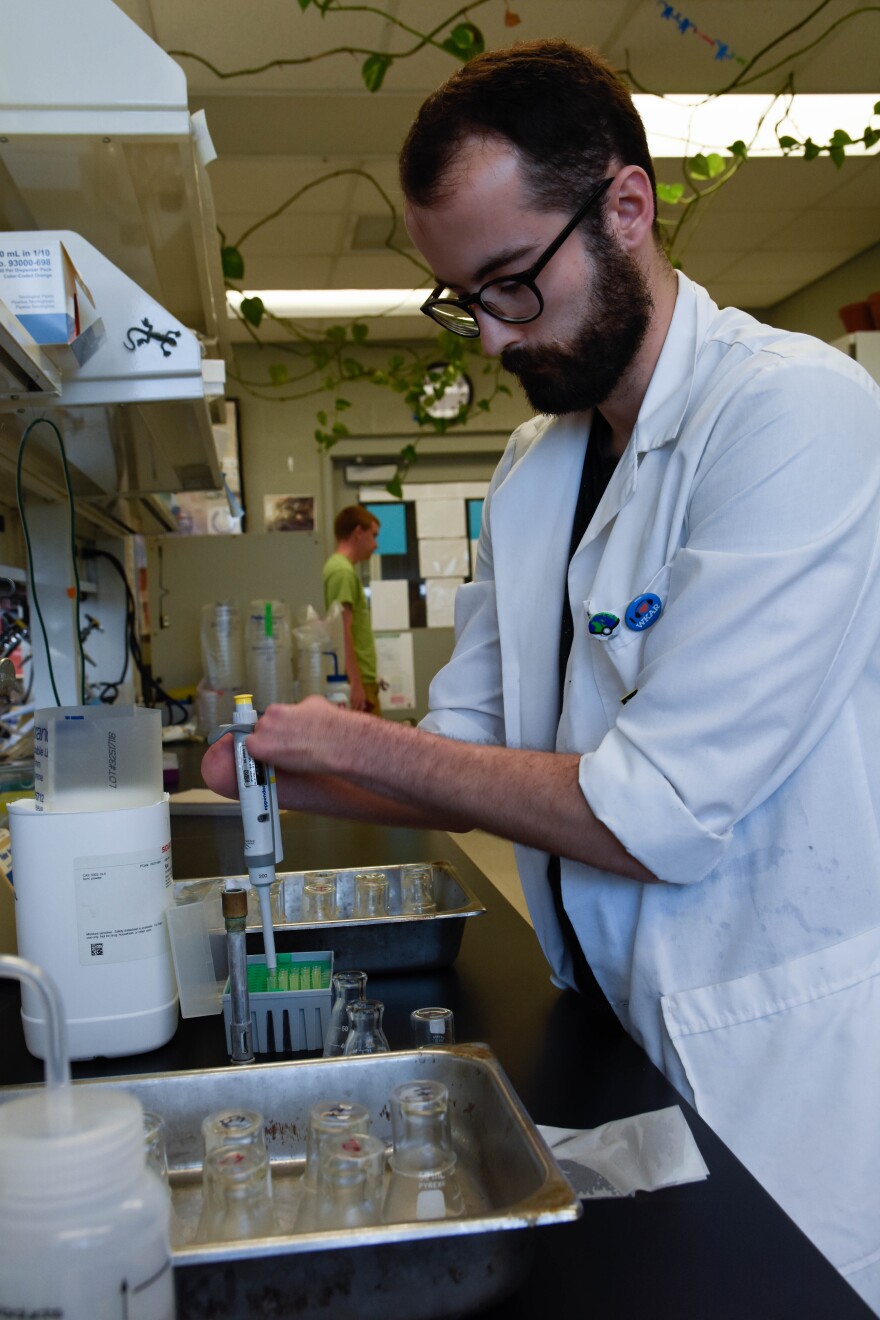Michigan State University biologist and Ph.D. candidate Kyle Card studies resistance to antibiotics. He became a scientist despite genetic syndromes affecting many parts of his body.
In our partnership with Michigan State University's Broadening Experiences in Scientific Training (BEST) program, we are featuring the stories of student scientists. Here’s Kyle’s story.

My name is Kyle Card. I’m an evolutionary biologist in the department of microbiology and molecular genetics here at Michigan State University.
So, I study the evolution of antibiotic resistance. This is a large problem worldwide. The problem is only getting worse. By the year 2050, about 10 million individuals worldwide will die every year from resistant infections.
I have Moebius Syndrome. It's under-developed cranial nerves that cause this syndrome. The symptoms of this are lack of facial expressions. I can’t smile. I can’t move my eyes side to side.
I also have what is called Hand-Heart syndrome... under developed limbs. I’m missing all 10 fingers on my hands. I’m missing a right foot. I wear a below-the-knee prosthetic device to help me walk. On my left foot, I don’t have toes.
Once you understand that you are living with something you can’t change then most other obstacles pale in comparison to that fact. My parents, from a very early age taught me to be self-reliant, to try to do things on my own... to fail. I can do things that most people can in my lab.

Microbiological techniques take a lot of manual dexterity and I’m slower than other people because I don’t have fingers to work with, but I just compensate by working in a slightly different way.
Both my disability and then general imposter syndrome contributed to a fear – an initial fear of going into graduate school. I was concerned that senior scientists would not see me as capable as other students. Everybody has something that most people don’t, whatever that happens to be. I would not change the fact that I have a disability. It’s an integral component of who I am.
I feel like the lessons learned from having them far outweigh me being like everybody else. They’ve taught me that I have a capacity to overcome obstacles. Graduate school is by far the hardest thing I’ve ever done, but on the flip side of that it’s the most rewarding thing I’ve ever done.
If I can help just one person my legacy would be a success. Science is my passion and I’ll do it for the rest of my life.




